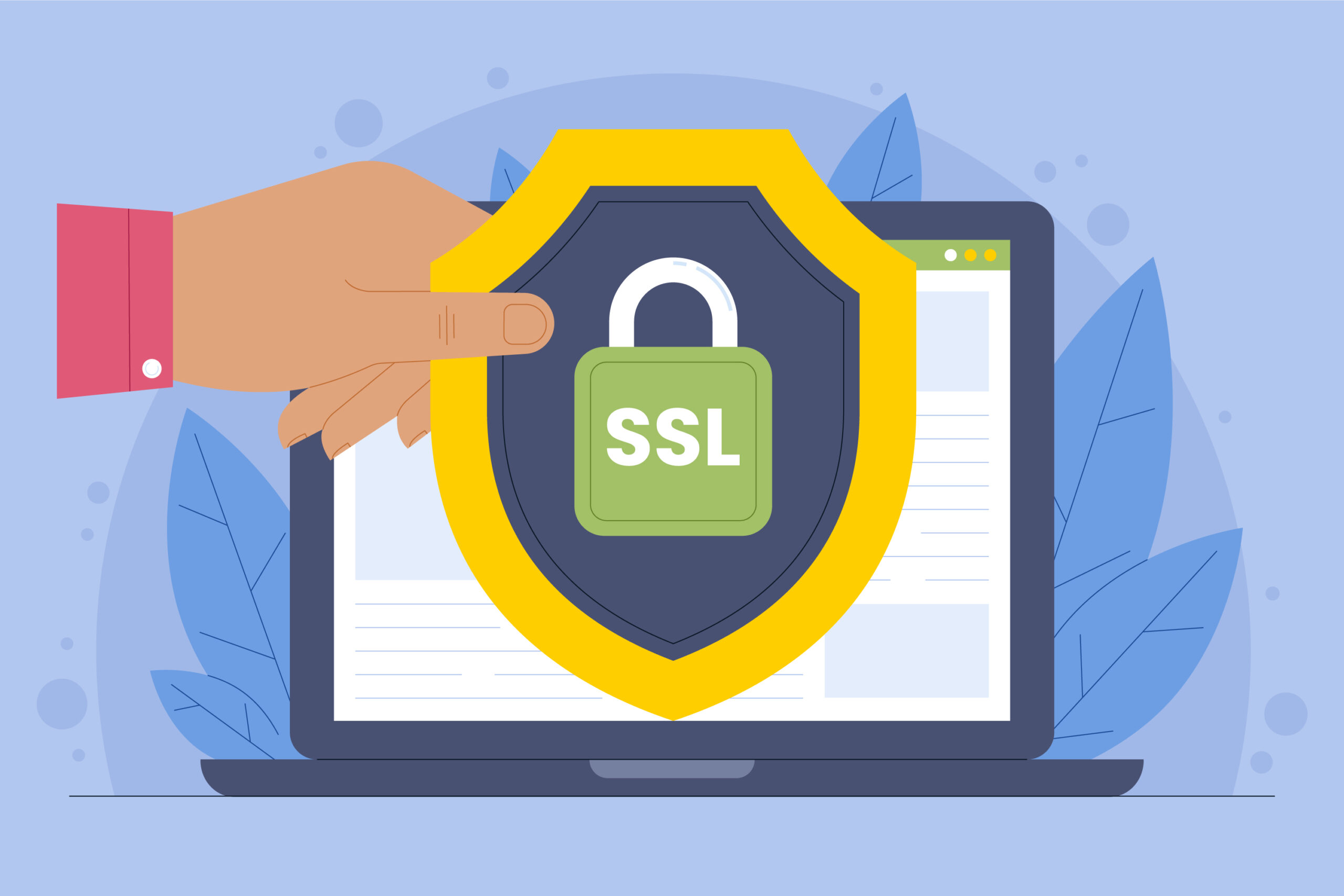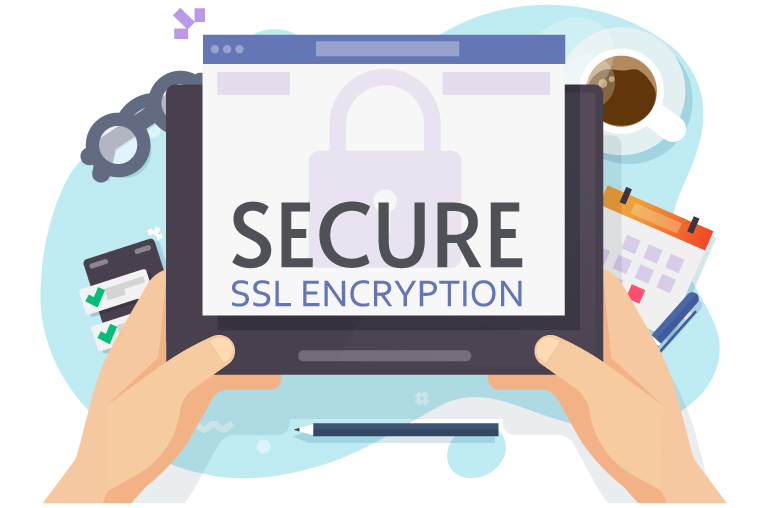Demystifying SSL Certificates: Ensuring Secure Website Communication
Demystifying SSL Certificates
Security is crucial for any website in the modern digital world. Protecting sensitive information and user privacy is essential in light of increasingly complex cyber threats. SSL certificates become useful in this situation. In this essay, we will debunk the myths surrounding SSL certificates and examine their significance, varieties, functional principles, methods of installation, and connections to website hosting.
Introduction to SSL Certificates
SSL (Secure Sockets Layer) certificates are cryptographic protocols that provide secure communication over the internet. They ensure that data exchanged between a web browser and a web server remains private and secure from unauthorized access.
The Importance of SSL Certificates for Websites
Enhanced Security and Data Protection
One of the primary reasons to use SSL certificates is to enhance security and protect the integrity of data transmitted between a website and its visitors. SSL certificates encrypt this data, making it virtually impossible for malicious actors to intercept and decipher sensitive information such as login credentials, credit card details, or personal data.
Establish trust and authority
SSL certificates play an important role in establishing trust and authority among website visitors. When a website is protected by an SSL certificate, the padlock icon is enabled, and “HTTPS” is displayed in the browser’s address bar. These visual clues reassure users that the website is authentic and that the connection is secure.
SEO benefits
Besides security and trust, SSL certificates also provide SEO (Search Engine Optimization) benefits. Search engines like Google treat HTTPS as a ranking signal. This means that websites with SSL certificates are more likely to rank higher in search results. This can have a significant impact on website visibility and organic traffic.
Types of SSL Certificates
There are several types of SSL certificates available, each catering to different needs and requirements. Understanding the different types can help you choose the right certificate for your site.
Domain Validation Certificate (DV)
Domain Validation Certificates are the most basic type of SSL certificate. They validate domain ownership but do not perform extensive background checks. DV certificates are suitable for personal blogs, news websites, or any website that does not handle sensitive user data
Organization Validation (OV) Certificate
An organization validation certificate verifies both the ownership of the domain name and the existence of the organization behind the website. They provide a higher level of assurance and are ideal for small businesses or organizations that handle customer data or sensitive information.
Extended Validation (EV) Certificate
The Extended Validation Certificate is the most complete and trusted SSL certificate. They go through a rigorous validation process, including legal verification of the organization. Sites with EV certificates display the organization’s name in the address bar, indicating the highest level of trust and security.
Wildcard certificate
Wildcard certificates secure the domain and its subdomains with a single certificate. For example, a wildcard certificate for “*.example.com” will secure “www.example.com”, “blog.example.com”, etc. They are a cost-effective solution for websites with multiple subdomains.
Multi-domain certificate
Multi-domain certificates, also known as Subject Alternative Names (SAN) certificates, allow you to secure multiple domains with a single certificate. They are suitable for businesses or individuals who manage multiple websites.
How SSL Certificates Work
SSL certificates use encryption and authentication mechanisms to secure communication between web servers and browsers.
Encryption and Authentication
When a user visits a website with an SSL certificate, the browser and server establish an encrypted connection. This encryption ensures that all data transmitted between the two parties remain confidential and cannot be intercepted or tampered with.
SSL handshake
During the SSL handshake, the browser verifies the SSL certificate installed on the server. Validate the validity of certificates, authenticity, and integrity of cryptographic keys. After verifying the certificate, the browser and server establish a secure connection.
Certification Authority (CA)
SSL certificates are issued by a certificate authority (CA). This trusted third party authenticates the certificate requestor and verifies that the certificate is properly installed on the server. Popular CAs include Let’s Encrypt, Comodo, and DigiCert.
Choose the right SSL certificate
Choosing the right SSL certificate for your website requires careful consideration of several factors. Evaluate your website needs
Start by assessing the nature of your website, the type of data it processes, and the level of trust and security it needs. This evaluation will help determine the appropriate validation level and type of SSL certificate.
level check
Consider the level of verification your website needs. DV certificates provide basic encryption, while OV and EV certificates provide a higher level of assurance and trust.
warranty and insurance
Check the warranty and insurance coverage provided by your SSL certificate provider. This coverage protects the website and its users in the event of a data breach or fraudulent activity.
Support and customer service
Pay attention to the level of support and customer service provided by your SSL certificate provider. Timely assistance and technical assistance can be very important, especially during installation and upgrade processes.
SSL certificate installation steps
Installing an SSL certificate on your website is a multi-step process.
Generate a Certificate Signing Request (CSR)
Before obtaining an SSL certificate, you must generate a certificate signing request (CSR). A CSR contains information about your website and server that CAs use to generate unique SSL certificates.
Choose a Certificate Authority (CA)
Choose a reputable CA to purchase an SSL certificate. Consider factors such as pricing, the review process, customer reviews, and compatibility with your hosting environment.
Complete verification process
After purchasing an SSL certificate, you must go through a verification process. This usually includes providing proof of domain ownership and additional documentation for OV and EV certificates.
Install a certificate on the server
After completing the verification process, you will receive an SSL certificate file from the certificate authority. Follow your server documentation or contact your hosting provider for instructions on how to install the certificate.
SSL certificate and website hosting
An SSL certificate is closely related to website hosting. Other hosting environments may require different SSL certificate configurations.
Shared Hosting
In a shared hosting environment, multiple websites share the same server resources. SSL certificates can be installed on shared hosting, but there may be restrictions or additional requirements imposed by your hosting provider.
Dedicated Hosting
Dedicated hosting provides a dedicated server for one site. SSL certificates can be easily installed on dedicated servers and offer maximum security and customization options.
Virtual Private Server (VPS) Hosting
VPS hosting offers a balance between shared and dedicated hosting. Provides a virtualized server environment so that users can install SSL certificates that meet their specific requirements.
SSL certificate renewal and management
SSL certificates have expiration dates, and it’s important to be proactive about renewing and managing them.
Certificate expiration monitoring
Regularly monitor SSL certificate expiration dates to ensure uninterrupted security. Set reminders or use our SSL management tool to track upcoming updates.
Certificate renewal and re-issuance
Continue to enjoy secure communications by renewing your SSL certificate from a CA before it expires. You may need to reissue a new certificate if there are any changes or issues, such as a compromised private key.
SSL management tool
Multiple SSL management tools and platforms simplify the upgrade and management process. These tools automate certificate installation and renewal and provide information about your SSL security posture.
Common SSL certificate errors and troubleshooting
Although SSL certificates increase security, you may encounter bugs that affect the functionality of your website from time to time.
Certificate name mismatch
This error occurs when the certificate does not match the domain or subdomain where it is installed. Double-check your certificate configuration and make sure it matches your website URL.
Invalid or expired certificate
If your SSL certificate is invalid or expired, your visitors may receive a warning or be prevented from accessing your website. Check the validity of your SSL certificate regularly and renew it before it expires.
Mixed content warning
A mixed content warning occurs when a website with an SSL certificate downloads an asset (such as an image or script) from an insecure HTTP source. All resources must be safely downloaded to avoid mixed content warnings.
The Future of SSL Certificates
SSL certificates continue to evolve to meet the ever-increasing security requirements of the digital world.
TLS 1.3 or higher
Transport Layer Security (TLS) is the successor to SSL. TLS 1.3 is the latest version with improved security, performance, and compatibility. Stay tuned for future versions of TLS to stay up to date with the latest encryption standards.
Quantum Computing and Cryptography
Quantum computing poses a potential threat to existing cryptographic algorithms. SSL certificate providers research and develop quantum-resistant cryptographic methods to ensure continued security.
Conclusion
SSL certificates are essential for website security, user data security, and trust building. By encrypting the communication between your web server and your browser, SSL certificates provide a strong layer of protection against cyber threats. Understanding certificate types, the installation process, and their relationship to website hosting can help you make an informed decision about implementing an SSL certificate for your website.

